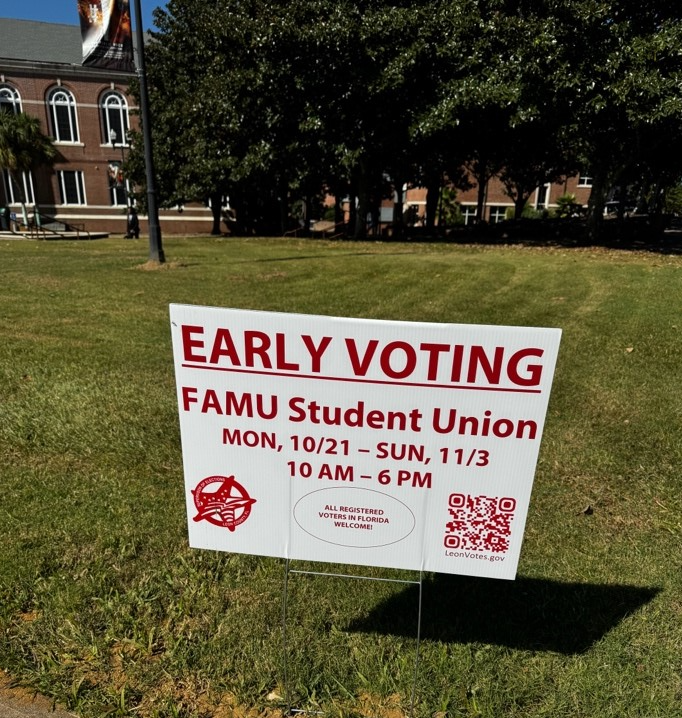
In the recent general election, Florida A&M University (FAMU) reported notably lower student voter turnout compared to neighboring institutions. At FAMU’s on-campus Precinct 1309, only 1,431 students cast their ballots, while nearby Florida State University (FSU) saw 7,336 student votes across its four precincts. This stark contrast has raised concerns about civic participation within the FAMU student body.
Shalyn Williams, a fourth-year FAMU student, reflected on her experience voting at Precinct 1309. “It was convenient, and it wasn’t as crowded as I thought it would be,” Williams said. She expressed the importance of on-campus voting accessibility and highlighted its role in making voting easier for students. “Regardless of where we vote, we just need to vote. But I think it’s better for our precinct to have good numbers to show that students on campus are engaged in politics.”
Williams acknowledged the turnout disparity between FAMU and FSU, saying, “This is a huge election, and for some students, it’s their first time voting. Compared to FSU, we don’t have as many students, but their numbers are much higher than ours. It’s kind of embarrassing because we always talk a good game as students, but when it’s time to show up, we have underperformed time after time.”
A poll worker at Precinct 1309, who requested anonymity, observed that the voting site saw only a few students per day, which, she suggested, could stem from a perception among students that voting is time-consuming. In reality, the process typically takes just a few minutes when prepared.
She pointed out that other campuses, like FSU, have clubs and initiatives explicitly dedicated to voter engagement, noting that increased efforts from FAMU’s campus organizations could potentially bolster turnout. Enhanced campus-wide efforts might include voter education workshops, campus rallies, or initiatives organized by student clubs to raise awareness about the importance of voting.
The low turnout at FAMU’s precinct is not an isolated incident. In September 2024, The Famuan reported a 16% decrease in voter participation at the FAMU Student Union precinct compared to the 2022 primary election, signaling a downward trend in student involvement. This decline emphasizes the need for more robust voter education and engagement initiatives, especially in an election year when issues central to students’ futures are on the ballot.
To understand the disparity further, some students and faculty suggest examining structural factors, such as class schedules, transportation, and awareness of registration deadlines, that might deter student voters. Additionally, exploring ways to foster a stronger culture of civic responsibility on campus could encourage students to view voting as both a right and a duty.
These observations indicate an opportunity for the FAMU community to deepen its commitment to civic engagement. The FSU turnout serves as a benchmark, highlighting the potential for FAMU’s numbers to improve with targeted outreach efforts. Whether through enhanced collaboration with voting organizations, tailored student engagement programs, or a renewed focus from student leadership, the university has an opportunity to ensure that its voice is fully represented in the democratic process.
As FAMU looks ahead to future elections, this moment serves as a reminder that voter engagement is not a one-time push but a continuous effort. By investing in initiatives that encourage political participation, FAMU can strive for a turnout that reflects the strength and unity of its student body in civic affairs.